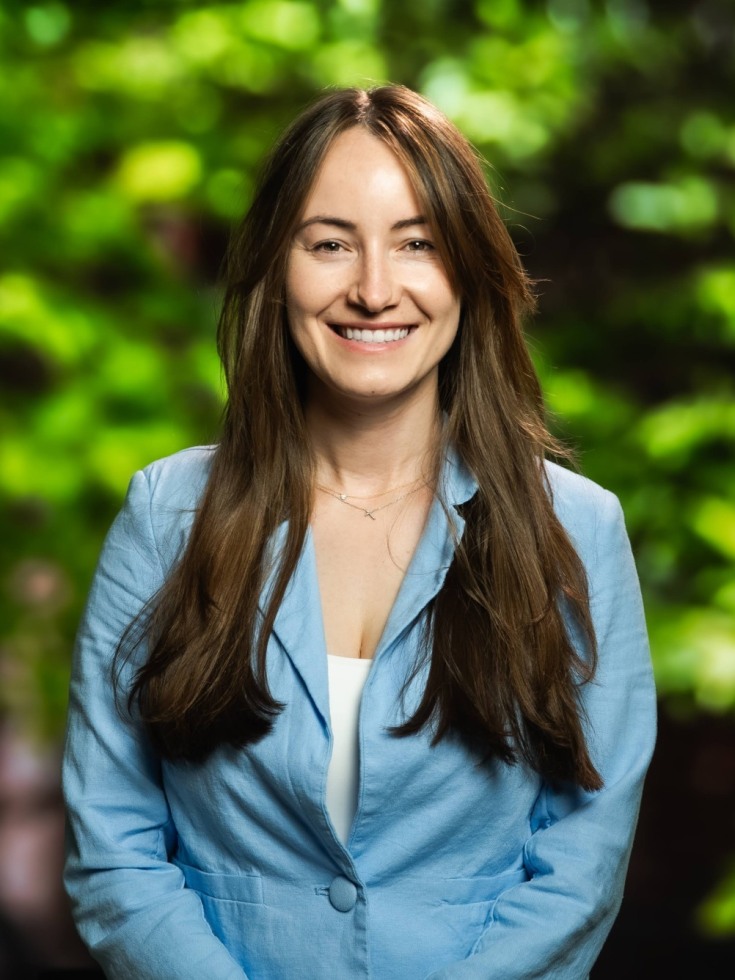The Watson School of International and Public Affairs recently welcomed a cohort of 66 Master of Public Affairs (MPA) students as part of its inaugural class, including four students seeking a dual MPA/MPH (Master of Public Health) degree. The rigorous, professional one-year program fosters a space where diverse perspectives are openly and respectfully debated, emphasizing learning through practice to prepare students to become leaders in the public policy arena.
Faculty Director of the MPA Program, David Blanding, welcomed the incoming class, praising their leadership potential, perseverance and commitment to public service. He encouraged them to take advantage of every opportunity, “whether that's prestigious fellowships with institutes doing cutting-edge policy research like the Costs of War Project, the Rhodes Center for International Economics and Finance, or the Institute at Brown for Environment and Society, courses with leading scholars like Eric Patshnik and Margaret Weir, or access to Watson Senior Fellows like David Cicilline, Malika Saada Saar and Isaac Dovere."
This year, 70% of the incoming MPA class are U.S. students representing 16 states and the District of Columbia. International students from 13 different countries make up the remaining 30% of the cohort. Five students come to the program from Historically Black Colleges and Universities (HBCUs), and five come from Hispanic Serving Institutions (HSIs). Two students are on active duty with the U.S. military, and one is a veteran. Whether they are mid-career professionals or newly graduated undergraduates, most students in the cohort have prior professional experience, whether it is from full-time jobs or high-impact internships in public service before graduating from college.
Associate Director of Admissions and Recruitment, Catherine Rodarte, said "The customizable curriculum of our one-year program attracts talented leaders from varied policy interests, lived experiences, and viewpoints who share a sense of urgency to address some of society's most pressing challenges." She noted that this year's cohort, "includes a student who served as an economic officer for the U.S. Department of State, students who worked as legislative staff in their home states, medical doctors passionate about health policy, fundraising and community engagement professionals from Rhode Island non-profits, a former elementary school teacher, and so many other mission-driven public service professionals."
The students' reasons for pursuing an MPA degree are as varied as their backgrounds.
Kelsey Crowley, an active-duty service member in the United States Army, entered the MPA Program due to a shift in her Army career. "I switched to what's called a functional area within the Army," said Crowley, "I will be working as a strategist, which allows you to pursue a master's degree if you don't already have a master's in public policy."
She said she chose the Watson School's program because of its flexibility and the variety of electives it offers. "Given my career path in the Army, having the opportunity to touch on a variety of topics appealed to me," she said. Crowley added, “The size of the cohort was also appealing — it's small enough that you get to know everyone, but large enough that you really get a diverse group.”
Marcos Montoya Andrade, a fifth-year Brown student earning his MPA with this year's cohort, wanted to continue the widely publicized work he did on immigration as an undergraduate. He said he did not consider any other MPA programs, noting, "Brown is the place I've loved for the past four years, and I knew it was the right place for me to continue my studies and earn an MPA."
Montoya Andrade credited Rodarte for encouraging him to apply. "She was one of the first people I talked to about the program," he recalled. "She guided me through the process and told me about the courses, but what I appreciated most was that she made me feel like I'd belong and be an asset to the program."
Montoya Andrade said being an MPA student at Brown feels different from being an undergraduate. "The program is very professionally-oriented," he said. "[The MPA team] constantly posts positions and internships that are open and that may be of interest to us. The program is clearly geared toward building new skills, honing the skills that you already have, and then translating that into a career," he explained.
Crowley noted that being part of a cohort with a broad variety of life experiences has been impactful. "Some of us are mid-career, and others are straight out of undergrad," she said, "but you find common ground, especially with those who are interested in the same topics." She noted that she has gravitated towards others focused on national security issues, but finds exposure to students with other interests stimulating. "It allows us to explore different perspectives, different topics, and learn from each other rather than just having the same conversations with people who think the same as you and want to study the same things as you," she said.
